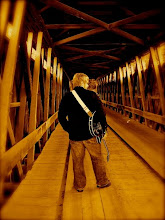Burton has the pole today at the Brickyard in Indy. Stewart won that last year, but his troubles this season and Gordon's ability to win at this track make it highly improbable that Stewart will repeat.
I wouldn't have known any of that three years ago during my freshman year of college. Some of that is because ESPN didn't cover NASCAR then, but some of it is because of my job. As many of you know, I work at Pamida, a small retail store which has taken me all over the country. I've worked at stores in Iowa, South Dakota, Minnesota, Michigan, Wisconsin, and Kentucky. While the geographical distance between these stores is great, the socio-economic condition of both the employees and customers that frequent these stores is quite unvaried.
There are two major themes that I have noticed since working at Pamida, which, with the exception of my Orange City store, lies outside the confines of "Christian-ized" society. First, there is an entire culture which has developed on the coattails of urban American society, a sizable group which is largely ignored by mainstream media (except maybe Larry the Cable Guy). The second observation is that the Christian community has largely ignored this segment of the population, which is quickly becoming the majority, either because they consider this group reprobate or because they simply don't know what to do with them.
This group is hard to define. In the past they would be known as "hicks", "blue collar" or "rednecks". They would also be considered in some circles "white trash". The rest of society has always relied on the "drive of the American spirit" to inspire this group to pick themselves up by their bootstraps and let capitalism motivate them to rejoin "real" society or get crushed for the betterment of the gene pool. The change has not occurred in the makeup of this group, but rather, the change has occurred in their mindset. No longer to they feel the need to elevate themselves into "normal" society. Contentedness with and even identification with their current socio-economic level is the important change that has occurred. There are the sterotypical interests of this group: alcohol, cigarettes, sex, motorsports, making enough money to get by, and a sense of entitlement. There is NOT, however, what we "red-blooded" Americans would expect "normal" people to innately have: a driving desire to have a better life, bigger house, better name in the community, strong church affiliation, latest technology, or political action.
Given this, who's life outlook is better? The ratrace American who strives to get the best of everything and constantly improve their lives, or the person who is content with where they are at and would rather enjoy where they are than tirelessly work to get ahead? How can an adult male work at a job where he makes $7 an hour? Because he can. Why isn't a trailer enough? Why isn't relaxing after your 9-5 with a few beers more appealing than killing yourself at work to buy an SUV or lakehome? Who's your senator? How does the internet work? What's the stock market outlook? Its simple: who cares?
In church we hear about the poor in other countries who are content with the little they have. We have a society of post-capitalistic content people living right here in America. This is the very reason welfare doesn't work. Its easier to swallow one's pride than to give up free money and labor again. What's more, while this group may be less politically correct than their white collar counterparts, they are, for the most part, more closely in line with the worldviews of minority groups such as inner city African Americans and immigrant Hispanic working groups. The tendency to prioritize nice trucks and satelite dishes over nice clothes and large homes with picket fences is a foreign concept to many of us.
Newsflash to churches in small communities: this is why your churches are declining in population. Life is easier if you don't care. The Church has always been reliant upon people caring, and hoping for a better future. That's why the Church has historically thrived amongst the poor. The church has died everywhere people see no point in hoping and working for a better future. What is the church to do about post-modern thinkers? The better question might be: what is the Church to do about post-capitalist thinkers? If the church really is an "opiate for the masses", then we've lost because the "masses" have found a few other culturally-acceptable opiates.
Subscribe to:
Post Comments (Atom)

No comments:
Post a Comment